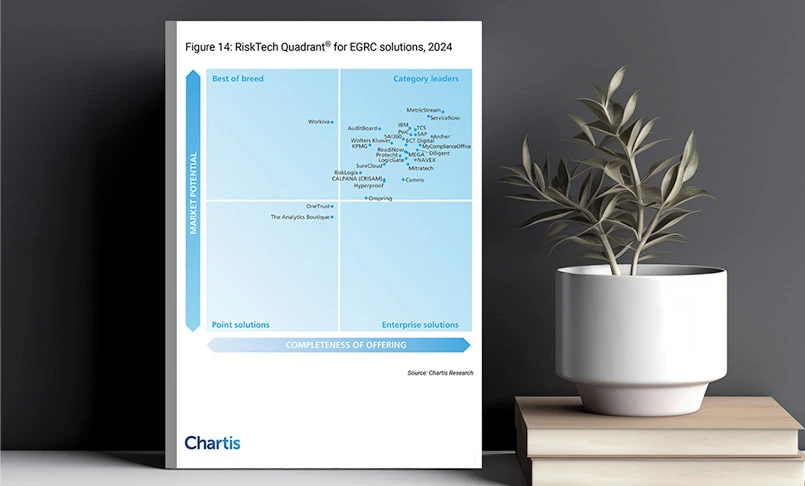CSR vs. ESG: What's the Difference in 2025?
- ESGRC
- 19 April 22

Introduction
The world is at a tipping point. Accelerating climate change, pollution, inequity, and conflict threaten to disrupt life and established order. These challenges must be addressed urgently. There is now greater demand for not just responsibility but also accountability from governments and even businesses on climate change and social and governance issues. Most ethical enterprises have always taken their social responsibility seriously and have had formal programs in place to give back to the ecosystem they operate within. But today, environmental, and social responsibility are business imperatives. And good corporate governance is vitally important for organizational success and reputation. Key stakeholders are no longer content with ad hoc displays of corporate responsibility. They want to see greater and continued commitment, measurable results, complete transparency, and governance from the enterprises they engage with on issues that matter. And this is what differentiates Corporate Social Responsibility (CSR) from Environment, Social and Governance (ESG) criteria.
ESG Criteria Takes the CSR Agenda a Step Further
The term CSR was coined in 1953 by American economist Howard Bowen, though it wasn’t until the 1970s that the social responsibility of businesses gained more visibility. It is driven by the belief that the organization bears some responsibility towards the community, environment, and society within which it functions. This defines the company’s responsibility towards the ecosystem supported by its philanthropic efforts and ethical duties. An enterprise’s CSR commitments are often a reflection of its values and a good indicator of its corporate culture. For the most part, CSR practices are self-regulated, and each organization chooses the initiatives that make the most sense for them.
CSR aims to make organizations accountable for their larger societal responsibilities, but these activities and their impact are not really measurable. There are also fewer governance measures pertaining to CSR. Today, as the world faces unprecedented challenges, customers, employees, investors, and shareholders are unanimously demanding to see focused action that drives positive transformation. ESG criteria take the CSR agenda one step further to integrate environmental and social responsibility into core corporate strategy along with a strong governance framework. It involves quantifiable targets and measurable impact assessments. For example, an auto manufacturer’s CSR drive could have their employees cleaning trash from city roads or embarking on an afforestation drive in their community. But their ESG policy would require them to make a firm commitment to planting a million trees by 2030 or ensuring a 25 percent increase in usage of recycled material in their manufacturing process.
Unlike CSR, ESG is Core to Organizational Strategy
The push for strong ESG metrics comes from different sources. 35 percent of consumers are willing to pay up to 25 percent more for sustainable products. And 76 percent of consumers are willing to disengage from companies that are not sustainable or who mistreat employees and communities. A whopping 86 percent of employees want to work for companies that share their value system and care about the same issues as them. Investors also want to know more about the social and environmental impact of any organization they work with. Which is why 95 percent of institutional asset owners have already implemented or are considering integrating sustainable investing practices across their portfolios.
Another point to note is that the risk landscape is highly volatile today. In fact, the nature of risk has shifted from economic to environmental, and social. Seven out of ten top likely risks, and eight out of the top ten most impactful risks identified by the World Economic Forum’s 2020 Global Risk Report pertain to environment, social and governance. Failure to meet ESG criteria can impact an organization’s financial performance and greatly damage its reputation. For example, not meeting emission reduction goals can lead to ratings downgrades and share price losses, and not improving wages and working conditions can result in high attrition and loss of productivity. ESG practices are also increasingly coming under regulatory scrutiny. The EU’s Sustainable Financial Disclosure Regulation (SFDR), UK’s potential climate risk reporting mandate, and the US’s proposed ESG Disclosure Simplification Act of 2021 are some of the regulations coming into play now. From April 2022, TCFD disclosure is likely to be mandatory in the UK for the 1300 largest UK registered companies including traded companies and private organizations that have over 500 employees and £500 million in turnover. As this space gets increasingly regulated, organizations will need robust risk management and compliance platforms that can aggregate relevant data from across the enterprise, automate processes, and ensure error free reporting.
The social contract between enterprises and the ecosystem it operates within is now stronger than ever with almost all key stakeholders demanding to see quantifiable, measurable action. Unlike CSR, ESG is core to organizational strategy and a critical driver of future growth. Of course, compliance with stringent regulations is one good reason to ensure healthy ESG practices, but the value of ESG goes deeper than that. A well thought out strategy, focused and results driven action, and transparent reporting will drive customer and employee relations, better investor relations, better market performance and reputation.
Metricstream ESGRC: Enabling Growth With Purpose
MetricStream ESGRC simplifies ESG management by integrating ESG requirements into your existing risk management and compliance frameworks and systems. Your organization is empowered to:
- Centrally manage disclosure requirements of various ESG frameworks including GRI, SASB, TCFD, and others
- Automatically capture data for a broad range of environmental, social, and governance metrics
- Manage and evaluate the ESG posture of suppliers based on multiple parameters
- Report ESG metrics to boards with deeper visibility gained from graphical dashboards and configurable reports
- Integrate with third-party systems to pull in relevant information related to environmental, social, and governance metrics
Interested to know more about how MetricStream ESGRC can drive sustainable growth, help you gain better access to investors, and ensure preparedness for impending ESG regulations? Request a demo now.
You may also want to read our latest eBooks on ESG:
Building an Enterprise ESG Program? Here's How Technology Can Help You Succeed









